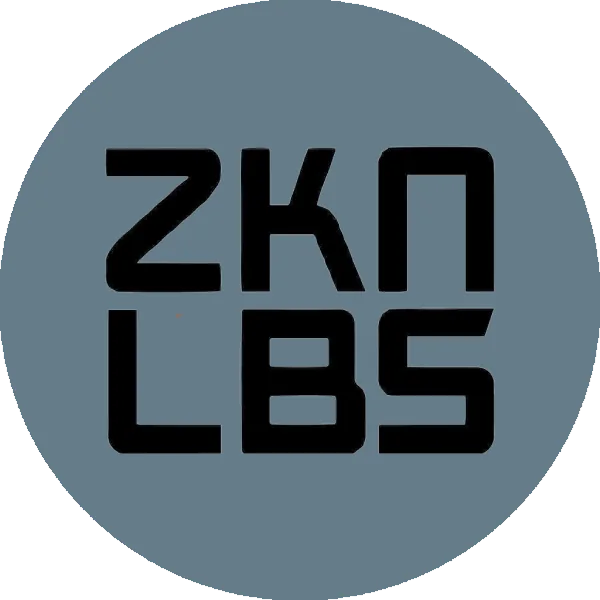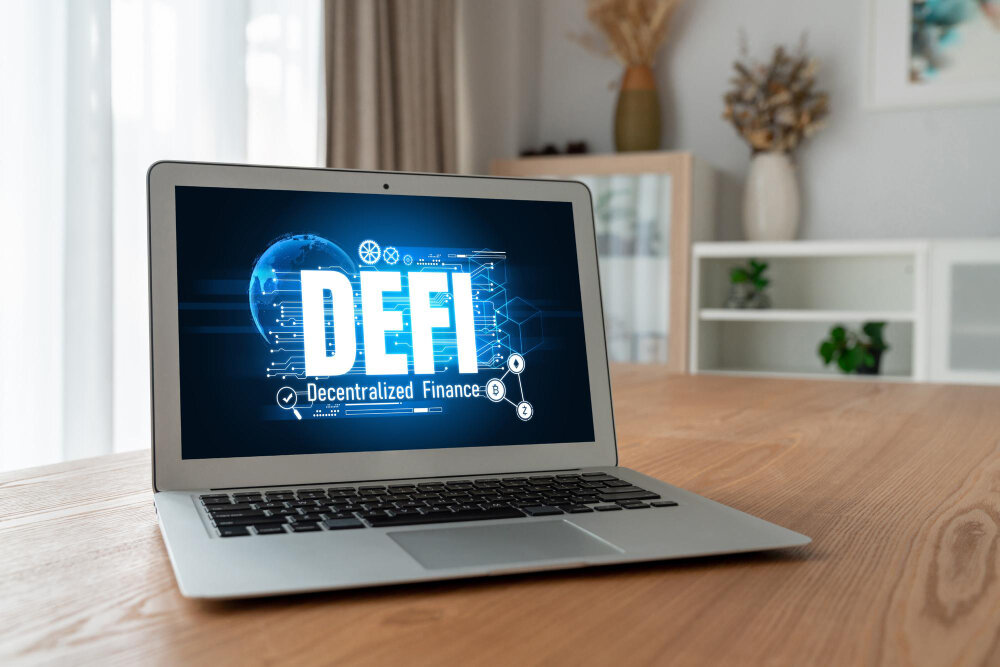Defining Defi: Understanding the Concept of Decentralized Finance
Decentralized Finance, commonly referred to as Defi, is revolutionizing the financial industry by introducing a new paradigm of openness, transparency, and inclusivity. Unlike traditional economic systems that rely on intermediaries such as banks or brokerage firms, Defi operates on blockchain technology, enabling peer-to-peer transactions and removing the need for intermediaries.
What is Defi Crypto?
At its core, Defi crypto solutions aim to provide open and permissionless financial services to anyone with an internet connection, regardless of their location or socioeconomic background. By leveraging smart contracts and self-executing agreements with predefined rules encoded on a blockchain, Defi platforms enable the creation of various financial instruments and applications securely and safely. Security is vital in the crypto space. That's why we developed PlasBit, utilizing all the best practices to assure the best security, including cold storage, multi-sig wallets, and multifactor authentication.
The Rise of Defi: How It Is Transforming the Financial Landscape
Over the past few years, Defi crypto solutions have experienced exponential growth, attracting billions of dollars in value and capturing the attention of investors, developers, and enthusiasts worldwide. This surge in popularity can be attributed to several key factors.
Firstly, the Defi ecosystem offers enhanced financial accessibility. Traditional economic systems often exclude large segments of the population, especially those in developing countries or individuals who need access to conventional banking services. Defi solutions eliminate these barriers by providing open access to financial services, such as lending, borrowing, and trading, to anyone with an internet-enabled device.
Secondly, Defi promotes financial transparency. Unlike traditional economic systems, where transactions and operations are often opaque, Defi operates on public blockchains, allowing complete clarity and audibility. This transparency fosters trust among users and allows developers and auditors to identify and fix vulnerabilities, enhancing the system's overall security.
Thirdly, Defi crypto solutions introduce innovative and automated financial applications. With smart contracts, Defi platforms enable the creation of decentralized applications (DApps) that can automate complex financial processes. These DApps can facilitate activities such as lending and borrowing without the need for intermediaries, significantly reducing transaction costs and increasing efficiency.
Key Benefits of Defi: Accessibility, Transparency, and Security
Defi crypto solutions offer many benefits to users, making it an attractive alternative to traditional financial systems. Some of the key advantages include:
Financial Inclusion
Defi allows unbanked or underbanked individuals to access essential financial services, empowering them to participate in the global economy.
Global Accessibility
Defi operates on a decentralized infrastructure, accessible to anyone with an internet connection, transcending geographical boundaries and reducing reliance on localized financial institutions.
Enhanced Privacy
With Defi, users have greater control over their financial information and can remain pseudonymous or even anonymous, protecting their privacy.
Lower Costs
By eliminating intermediaries and automating processes, Defi significantly reduces transaction costs, making financial services more affordable and accessible to a broader range of individuals.
Improved Security
Defi leverages the security features of blockchain technology, such as cryptographic encryption and immutability, to protect user funds and data from hacks and unauthorized access.
As the Defi ecosystem continues to evolve and mature, it holds the potential to reshape the financial landscape, providing a more inclusive and efficient system that empowers individuals to have greater control over their finances. We will delve deeper into the Defi crypto solutions, exploring their various components and their opportunities for users.
Exploring the Defi Ecosystem
The Defi crypto solutions comprise various platforms and protocols facilitating decentralized financial activities. These platforms leverage blockchain technology to provide users with various financial services, including lending, borrowing, trading, and more. Let's take a closer look at some of the key components of the Defi infrastructure:
Decentralized Exchanges (DEXs)
DEXs are at the forefront of Defi, enabling users to trade cryptocurrencies directly with each other without relying on intermediaries. These exchanges utilize smart contracts to automate the trading process and provide users with a more secure and transparent environment. Popular DEXs include Uniswap, SushiSwap, and PancakeSwap.
Lending and Borrowing Platforms
Defi lending and borrowing platforms allow users to lend their cryptocurrencies to others in exchange for interest or borrow assets by leveraging their existing holdings as collateral. These platforms eliminate the need for traditional banks as intermediaries and provide more inclusive lending opportunities. Compound, Aave, and MakerDAO are prominent examples in this space.
Yield Farming and Liquidity Mining
Yield farming provides liquidity to Defi platforms by locking up cryptocurrencies in smart contracts. In return, users earn additional tokens or fees generated by the platform. Liquidity mining, on the other hand, incentivizes users to provide liquidity to specific pools or protocols by rewarding them with tokens. These mechanisms encourage participation and help bootstrap liquidity in the Defi ecosystem.
Stablecoins
Stablecoins play a crucial role in Defi by providing price stability and bridging the volatile cryptocurrency market and traditional financial systems. These digital assets are typically pegged to a stable asset, such as a fiat currency or a basket of assets, ensuring their value remains relatively stable. Examples of popular stablecoins include Tether (USDT), USD Coin (USDC), and Dai (DAI).

Challenges and Risks in Defi: Security, Scalability, and Regulation
While the Defi crypto ecosystem presents numerous opportunities, it also faces challenges and risks that must be addressed for widespread adoption. Some of the key challenges include:
Security Risks
Smart contract vulnerabilities and hacking incidents have highlighted the importance of robust security measures within the Defi ecosystem. Auditing smart contracts, implementing secure coding practices, and adopting rigorous security protocols are crucial to mitigate such risks.
Scalability
As the number of users and transactions within Defi platforms grows, scalability becomes critical. The current limitations of blockchain technology, such as high fees and network congestion, pose challenges for Defi to scale and handle large volumes of transactions.
Regulatory Environment
The rapidly evolving nature of Defi presents regulatory challenges for governments worldwide. Regulators are seeking to strike a balance between consumer protection, anti-money laundering (AML) measures, and fostering innovation within the crypto space. Compliance with regulatory frameworks will be essential for crypto's long-term sustainability and adoption.
Despite these challenges, the Defi ecosystem continues to innovate and address these issues through ongoing research and development efforts. As the industry matures, solutions such as layer two scaling solutions, improved security standards, and regulatory frameworks are expected to emerge, further strengthening the Web3 landscape.
We will explore the opportunities and benefits that the Defi crypto ecosystem offers to individuals and businesses, highlighting the transformative potential of this decentralized financial system.
The Future of Defi Crypto Solutions
As decentralized finance (Defi) continues to evolve and gain momentum, the future holds immense possibilities for Defi solutions. We will explore the potential advancements and emerging trends shaping crypto's future.
Interoperability and Cross-Chain Solutions
The Defi landscape is fragmented, with different platforms operating on separate blockchain networks. The future of crypto will witness increased interoperability, allowing for seamless communication and transactions across other chains. Cross-chain solutions will enable users to access a wider range of financial services and leverage the benefits of multiple blockchain networks.
Improved Scalability
Scalability has been a persistent challenge in the Defi space, with network congestion and high transaction fees limiting the growth and accessibility of decentralized applications. However, ongoing research and development efforts are focused on addressing these scalability issues. Layer 2 solutions, such as sidechains and state channels, aim to enhance network throughput and reduce transaction costs, making Defi more efficient and user-friendly.
Enhanced User Experience
As Defi matures, user experience will be crucial in driving adoption. User-friendly interfaces, intuitive applications, and seamless onboarding processes will be prioritized to attract mainstream users. Defi platforms will simplify complex financial operations, making them more accessible and understandable for individuals with varying levels of technical expertise.
Regulatory Compliance
As the Defi ecosystem expands, regulators are increasingly taking notice. In the future, regulatory frameworks and compliance standards specific to Defi will emerge. Striking a balance between innovation and regulatory compliance will be vital for the long-term sustainability and integration of Defi into the global financial system.
Expansion of Defi Use Cases
Defi is not limited to just lending, borrowing, and trading. The future will witness an expansion of use cases, including decentralized insurance, prediction markets, decentralized identity solutions, and more. These applications will bring new opportunities and reshape traditional sectors, unlocking value and efficiency through blockchain and smart contracts.
Whether it's holding and utilizing cryptocurrencies securely, accessing a broader range of financial services, or participating in the governance of decentralized protocols, Defi offers individuals the freedom to take control of their economic destinies. By embracing the future of Defi, we can reshape traditional finance and pave the way for a more equitable and decentralized financial system.
Empowering Users with Secure Solutions
Defi crypto users are now equipped with security solutions that empower them to navigate the world of decentralized finance. These innovative solutions give individuals greater control over their digital assets while ensuring privacy and security in their transactions.
How to Buy Crypto on Defi?
Moreover, privacy is a fundamental aspect of the decentralized finance landscape. Users can conduct transactions without revealing personal information, maintaining their privacy. This privacy fosters a greater sense of control over one's financial activities, aligning with the core principles of decentralized finance. We developed PlasBit to create a secure and confidential platform by providing services such as wallets, Visa cards, and our exchange.
Looking Ahead: What is The Future of Defi Crypto?
As the crypto ecosystem continues to evolve, defi crypto solutions will play an increasingly vital role in driving the widespread adoption of decentralized finance. As the technology matures, we can anticipate further advancements in security measures and privacy-enhancing tools, improving user experiences and attracting more individuals to crypto.
Furthermore, integrating these solutions into various financial services, such as lending, borrowing, and trading platforms, will expand the opportunities available to users. The seamless integration of secure and anonymous solutions into various aspects of the crypto ecosystem will be pivotal in bridging the gap between traditional finance and decentralized finance.
In conclusion, Defi represents a paradigm shift in finance, offering individuals the tools and opportunities to take control of their financial lives. Secure and user-centric solutions, such as our crypto debit cards, bridge the gap between traditional and decentralized finance, enabling individuals to embrace the benefits of cryptocurrencies seamlessly. At PlasBit, we continue to explore this topic on our blog and innovate within the Web3 ecosystem. Let us envision a future where financial freedom and empowerment are accessible.







